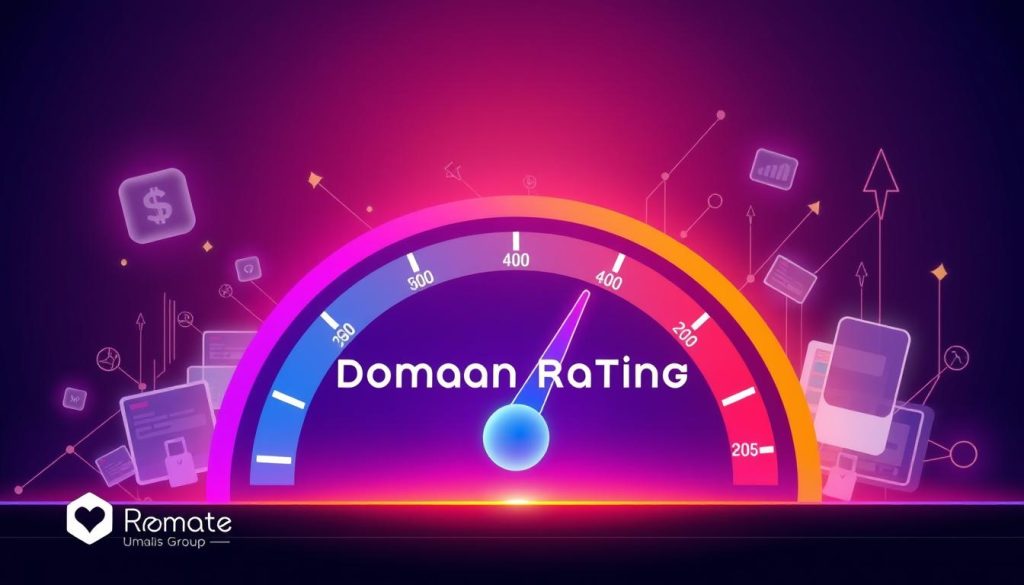In the world of digital marketing, link building is key. Search engines keep improving their algorithms. This makes getting high-quality backlinks more important than ever. Google’s PageRank Algorithm, for example, looks at how many links point to a page1.
Google also says links are among their top three ranking factors2.
The link building world has changed a lot. Now, it’s all about quality over quantity. Google Penguin updates have made this clear1. An ex-Googler says the linking site’s relevance to the content matters a lot1.
Quality backlinks are vital for SEO. Search engines use links to judge a website’s quality3.
In this guide, we’ll cover the basics and strategies for link building. We’ll talk about different types of links and how content plays a role. You’ll learn how to use tools to make your link building better. By the end, you’ll know how to create a strong link building campaign. This will help drive traffic, improve rankings, and make your brand a leader in your field.
Table of Contents
Key Takeaways
- Link building is a critical component of SEO, with search engines using links as a ranking signal.
- Quality links from relevant and authoritative sites are more valuable than a large quantity of low-quality links.
- Creating high-quality, link-worthy content is essential for attracting natural links.
- Effective link building strategies include guest blogging, broken link building, and influencer outreach.
- Monitoring key performance indicators and adjusting strategies based on data is crucial for measuring success.
What is Link Building?
Link building is a key part of search engine optimization (SEO). It’s about getting hyperlinks from other sites to yours. These links, or backlinks, help your site show up better in search results. Google’s Andrey Lipattsev said backlinks are important for ranking4. In fact, 8 of the top 20 ranking factors are related to backlinks5.
Definition of Link Building
Link building means getting links from other websites to yours. These links show search engines your content is worth sharing. Sites with lots of good backlinks usually rank higher4.
Importance of Link Building
Link building is crucial for several reasons:
- It helps your site rank better in search engines by getting quality links.
- It brings more visitors to your site when people click on links to your content.
- It makes your brand look more trustworthy by getting links from respected sites.
Being popular can really help your site rank better, as more people link to popular sites6. Getting links from trusted sites is especially important for search engines6.
Key Concepts and Terminology
To do link building well, you need to know some key terms:
| Term | Definition |
|---|---|
| PageRank | Google’s way of measuring a webpage’s importance based on its backlinks. |
| Link Quality | The value of a backlink, based on the site it comes from and where it’s placed. Quality is more important than how many links you have4. |
| Anchor Text | The text you click on in a link. Using anchor text wisely is important for SEO, as too many keywords can look spammy6. |
| Nofollow Links | Links marked as « rel=nofollow », telling search engines not to follow them. These links show the publisher doesn’t endorse the link5. |
By grasping these concepts and using smart link building, you can make your site more visible, attract more visitors, and become a leader in your field.
« Link building is an art. It’s almost always the most challenging part of an SEO’s job, but also the one most critical to success. » – Erin Everhart, Senior Manager, Media Strategy & Mobile at The Home Depot
The Benefits of Link Building
Link building is key to search engine optimization (SEO). It helps websites get more visibility, drive traffic, and show they’re industry leaders7.
Enhancing Search Engine Rankings
Link building boosts search engine rankings. Google and others look at a website’s link profile when ranking7. Backlinko found top Google pages have almost four times more links than lower-ranked ones8.
Good links from trusted sites tell search engines your content is worth sharing. This leads to better rankings for your keywords7.
Driving Referral Traffic
Link building also increases referral traffic. Guest blogging on busy sites can attract visitors. Each link stays active as long as the page does7.
Ahrefs studied over a billion pages and found a link-back relationship with organic traffic8. SnackNation, for example, got over 700,000 visitors monthly by building 400 links8.
Building Brand Authority
Link building is vital for brand authority and thought leadership. It boosts credibility through endorsements and mentions7. Getting links from trusted sites makes your content a go-to source7.
Having many links can create a credibility snowball effect8. Here’s how link building affects brand authority:
| Benefit | Impact |
|---|---|
| Increased brand visibility | Being featured in round-up articles, interviews, or « best of » lists on other websites7 |
| Enhanced brand awareness | Backlinks act as digital referrals that spread word-of-mouth across the web7 |
| Networking opportunities | Connecting with industry leaders and influencers, leading to collaborations and partnerships for business growth7 |
Creating good-quality original content is a key aspect of white hat link building strategies to encourage valuable links8.
By focusing on quality content and reaching out to experts in the niche, businesses can enhance their link building strategies for better SEO outcomes8.
Types of Links
In the world of link building, there are three main types: natural, manual, and self-created. Each type has a unique role in a website’s link profile. They can affect search engine rankings differently. Most online links are created without asking, which helps connect websites9.
Building quality links that aren’t asked for is a big challenge for SEO. It’s key to know the value and characteristics of each link type9.
Natural Links
Natural links, or editorial links, are earned when other sites link to your content without you asking. These links are very valuable because they show your content’s quality and relevance. Getting editorial links, whether you ask for them or not, can be just as valuable9.
Manual Links
Manual links are earned through efforts like outreach or guest blogging. You need to actively work to get these links. Amanda Milligan from Fractl tracks links earned, types, Domain Authority, and differentiates between pitches and organic sources9.
When building manual links, focus on quality over quantity. Make sure they come from relevant and authoritative sources.
Self-Created Links
Self-created links are made by you, like blog comments or user profiles. These links often come from low-quality sources and are less valuable than editorial links9. Examples include blog comments, press releases with over-optimized anchor text, and article directories9.
While they can add to your link profile, use them sparingly to avoid search engine penalties.
The nofollow attribute in links tells search engines not to pass PageRank, affecting the target URL’s ranking9. Google might count nofollow links in organic search rankings now, thanks to new attributes in 20199. Despite this, having a variety of links is important for building value9.
| Link Type | Characteristics | Value |
|---|---|---|
| Natural Links | Earned organically, unsolicited | High |
| Manual Links | Acquired through deliberate efforts | Moderate to High |
| Self-Created Links | Created by the website owner | Low to Moderate |
When building links, consider internal and external links. Internal links help search engines understand your site’s structure10. They also help visitors navigate and pass link equity, boosting authority and rank10. External links, on the other hand, show page authority and credibility10.
High-quality content is a top-ranking factor in SEO, closely followed by backlinks.
Webmasters should avoid risky link building tactics that violate search engine guidelines9. Safe tactics are low-risk and within guidelines, preventing penalties9. By focusing on quality content and earning natural links, websites can improve rankings and drive traffic.
Link Building Strategies
To succeed in SEO, you need good link building strategies. Focus on making quality content that others want to link to. This boosts your site’s authority and rankings11. Content marketing is key, as it makes content that attracts links from other sites12.
Guest Blogging
Guest posting on good sites is a great way to reach new people and get backlinks11. It helps show your expertise and build relationships. But, always add value to the host site’s audience and don’t just rely on guest posts12.
Broken Link Building
Broken link building finds broken links and offers your content as a fix. It’s good because sites don’t like broken links, so they’ll take your content11. Use tools to find these links and make quality content to replace them. This builds good partnerships and improves your link profile.
Influencer Outreach
Working with influencers can really help your link building. You can get links and more visibility through different ways, like:
- Working on joint campaigns or announcements12
- Providing expert advice or content for articles11
- Sharing testimonials or case studies12
When contacting influencers, aim to build real relationships and offer value, not just for links.
Digital PR
Digital PR is a strong link building method. It gets you online media coverage and links11. Create interesting content, answer media requests11, and work with journalists. This can get you links from important sites. Try things like:
| Tactic | Description |
|---|---|
| Link Baiting | Make content that writers or readers naturally want to link to12 |
| Discount Offerings | Give discounts to get mentions and links from writers12 |
| Crowdsourced Posts | Join crowdsourced posts that are quick to respond to and can get you valuable links12 |
By using these strategies and getting links from good sites11, you can improve your site’s search engine ranking. This gives you an edge in your field.
Tools for Effective Link Building
There are many tools to help make link building easier and more effective. You can find SEO analysis software, outreach management platforms, and link tracking solutions. Each tool has its own role in the link building process.
SEO Analysis Tools
SEO tools like Ahrefs, SEMrush, and Moz are key for keyword research and backlink analysis. Ahrefs, for example, has tools like a Backlink Checker and a Broken Link Checker. It starts at $108/mo if you pay yearly13. Semrush offers a Backlink Gap Tool for comparing backlinks, with prices from $139.95 to $499.95 per month14. These tools help you find link opportunities and analyze competitors.
Outreach Management Tools
Outreach tools make finding and contacting potential link partners easier. Pitchbox helps track broken links and offers personalized campaigns. It starts at $165/mo if paid yearly13. BuzzStream provides tools like BuzzMarker for outreach, starting at $24 per month13. These tools help build relationships and get valuable links.
Link Tracking Software
Link tracking software is vital for keeping an eye on your link profile. Linkody checks if backlinks are indexed by Google and monitors landing pages. It starts at a free trial and €10.50/mo if paid yearly13. Majestic focuses on link monitoring and competitor analysis, with tools like the Link Graph and Bulk Backlink Checker. It starts at a free trial and $41.67/mo if paid yearly1315. These tools help you manage your link building efforts and make informed decisions.
« At a link building agency, the team has utilized 16 different link building tools for effective campaigns, resulting in client sites acquiring thousands of links from renowned platforms like Hubspot, Capterra, and Venngage. »15
| Tool | Starting Price (Monthly) | Key Features |
|---|---|---|
| Ahrefs | $99 | Backlink Checker, Broken Link Checker, Link Intersect |
| SEMrush | $119.95 | Backlink Gap Tool, Keyword Research, Competitor Analysis |
| Majestic | $49 | Link Graph, Bulk Backlink Checker, Alternative Backlink Data |
| Pitchbox | $550* | Broken Link Monitoring, Personalized Campaigns, Email Scheduling |
| BuzzStream | $24 | BuzzMarker, Email Outreach, Relationship Management |
| Linkody | €10.50 | Backlink Indexing Checks, Landing Page Monitoring |
*with annual commitment
Using these tools can improve your link building strategy. They make the process more efficient and help you achieve better SEO results.
Understanding Link Quality

Link building is not a one-size-fits-all task. To get the most out of your efforts, knowing what makes a link good is key. Sites with a domain rating (DR) of 50 or higher are seen as trustworthy and authoritative. This boosts a site’s standing in the SEO world16.
Getting links from top sites can make your site more visible in search results16. The top spot on Google often has more backlinks than lower spots17.
When judging link quality, look at Domain Authority (DA), Page Authority (PA), and Spam Score. Sites with high DA, PA, and low Spam Score are great for backlinks16. Getting links from sites in your field can increase your site’s visibility and rankings17.
Measuring Domain Authority
Metrics like Moz’s Domain Authority and Ahrefs’ Domain Rating show a site’s strength and trustworthiness. These scores consider the number and quality of links, the variety of domains linking to you, and the authority of those pages. Having diverse domains linking to you is better for SEO than many links from a few sites16.
Analyzing Relevance and Trustworthiness
Links from reputable, relevant sites are more valuable. They can greatly improve your site’s credibility. In-content links are especially valuable for endorsing content16.
Building relationships with trusted sites in your field can open up valuable link opportunities. It also helps increase your brand’s awareness by showing your expertise and authority17.
The Role of Anchor Text
Anchor text gives context and helps search engines understand the linked page’s topic. Using relevant keywords in anchor text can boost your backlinks’ topical relevance. But, it’s important to avoid over-optimizing by using a variety of anchor text types.
| Anchor Text Type | Example | Distribution |
|---|---|---|
| Exact Match | « link building strategies » | 1-2% |
| Partial Match | « effective link building » | 1-2% |
| Branded | « WordStream » | 70% |
| Generic | « click here », « read more » | 25% |
By focusing on link quality like domain rating, topical relevance, and anchor text, you can build a strong link neighborhood. This drives more traffic and improves your search rankings. Remember, link building is a long-term effort that needs patience, persistence, and valuable content.
The Role of Content in Link Building
Content is key to good link building. Making quality content that people want to share can help your site get more links. Studies show that longer content, over 3,000 words, gets more links than short content18. Long content also gets more social shares, but only up to 2,000 words18.
Creating Link-Worthy Content
To make content that gets links, focus on making it well-researched and engaging. It should be well-written and up-to-date18. Content like infographics, guides, and data-driven pieces are great for getting links18.
Infographics are a top choice for SEO experts, with 53% using them to get links19. Yet, only 54% use data-driven content, citing it as the most effective, but it takes time19.
Utilizing Infographics and Visuals
Visuals like infographics and videos are easy to share and get links. These linkbait pieces grab attention and encourage links. Make sure your infographics are eye-catching and full of useful info.
Case Studies and Research
Original research and data-driven content offer unique insights. Case studies show your expertise and are great for links. White papers are also popular, with 60% finding them good for link building19.
Content is king when it comes to link building. By focusing on creating valuable, informative, and engaging content, you can naturally attract high-quality links and boost your website’s authority.
Creating evergreen content is crucial for successful content promotion and link building. Keep making quality content and use smart outreach to build a strong link profile. This will help your site rank better in search engines.
Avoiding Link Building Pitfalls

Link building is key to SEO, but beware of common mistakes. Using black hat methods like link schemes or private blog networks might seem helpful at first. However, they can get you in trouble with search engines20.
Recognizing Black Hat Techniques
Stay away from black hat link building tricks. Google doesn’t value low-quality tactics like blog comments or social bookmarks much anymore20. Getting links from low-quality sites can hurt your site’s credibility and ranking21.
Google now focuses on giving users content they need. So, links from irrelevant sites can harm your site’s standing21.
Consequences of Poor Link Building
Bad link building can really hurt your site. Using the same anchor text too much can make it hard to rank for certain keywords20. Sites with lots of bad backlinks can also see their rankings drop21.
Too many exact match anchor texts can get you penalized by search engines21.
Automating outreach too much can get you labeled as spam20. Using widgets or link schemes can also lead to penalties20. Blog networks might seem helpful but can cause problems later20.
Best Practices to Follow
To link build well, stick to the best practices. A survey found that search intent is key for SEO, with link building being important too22. Focus on the quality and relevance of your backlinks to improve your site’s reputation and ranking2122.
Create content that people want to link to for better link building22. Avoid buying links, as Google frowns upon it22. A mix of link types shows your site is trustworthy, while only dofollow links can harm your reputation21.
Vary your anchor texts and sources to avoid penalties from search engines22.
| Best Practices | Consequences of Poor Practices |
|---|---|
| Focus on search intent and relevance | Penalties from search engines |
| Create link-worthy content | Damaged website reputation |
| Prioritize quality over quantity | Diminished ranking ability |
| Diversify anchor texts and sources | Blacklisted as spam |
By sticking to white hat link building, you can boost your site’s rankings and attract more visitors.
Measuring Success in Link Building
It’s key to track your link building progress and its impact. This helps you tweak your strategy and hit your SEO targets. By looking at important metrics and data, you can see what’s working and what needs a tweak. This way, you can focus your efforts for the best return.
Key Performance Indicators (KPIs)
To gauge your link building success, keep an eye on these KPIs:
- Link acquisition rate: The number of new links you get in a set time
- Referring domains: The number of unique sites linking to you, showing the variety of backlinks23
- Backlinks: The total links pointing to your site, including links from the same site2324
- Authority scores: Scores like Domain Authority (DA) and Page Authority (PA) predict your site’s ranking24
- Organic search traffic: The rise in visitors from search engines due to better rankings
Analyzing Traffic and Conversion Rate
It’s also crucial to check how your link building affects website traffic and conversion rates. Backlinks are key for bringing in potential customers24. By watching the quality and relevance of these links, you ensure your strategy attracts the right people.
Conversion rates from these visitors show how engaged they are with your site24. Tracking this helps you see if your link building is driving not just visitors, but also actions like buying or signing up.
Adjusting Strategies Based on Data
Regularly analyzing data lets you make smart choices and tweak your link building plans. By looking at link relevance, anchor text variety, and spam scores, you can spot areas to improve and fine-tune your approach24.
Tools like Ahrefs, SEMrush, Moz Pro, Google Analytics, and Google Search Console help you keep track and optimize based on data24. They give you insights into your link profile, keyword rankings, and SEO performance. This helps you adjust your strategy and boost your ROI.
| KPI | Description | Impact |
|---|---|---|
| Link Acquisition Rate | Number of new links acquired over a specific period | Shows how well your link building is doing |
| Referral Traffic | Traffic from external links to your site | Brings in potential customers and boosts your brand |
| Organic Search Traffic | Traffic from search engines due to better rankings | Shows the link building’s effect on SEO |
| Conversion Rate | Percentage of visitors who take desired actions | Indicates the quality and engagement of referral traffic |
By always measuring success and making smart tweaks, your link building will achieve the desired results. This will help your website grow.
Future Trends in Link Building
Link building strategies must keep up with new trends and technologies. AI will change how marketers do link building. It will make outreach better and find quality links easier25.
Search algorithm updates will also shape link building’s future. Google and Bing will focus more on user experience and content quality. Building links from trusted sources will become even more important26.
The Growing Importance of E-A-T (Expertise, Authoritativeness, Trustworthiness)
E-A-T will become key in link building. Search engines will value content quality and author credibility more. Creating valuable content will attract better backlinks and improve your site’s E-A-T rating. Long-form content gets more backlinks than short posts27.
To thrive in link building, focus on building relationships. Work with influencers and reputable sites. Use podcasts or YouTube videos for audio link building25. Stay updated to keep your link building efforts effective.
FAQ
What is link building and why is it important for SEO?
Link building means getting hyperlinks from other websites to yours. It’s key for SEO because search engines like Google use links to rank sites. Links show search engines your content is valuable and trustworthy, helping your site rank better.
What are the main benefits of effective link building?
Good link building boosts your site’s search engine rankings and gets more visitors. It also makes your brand more authoritative. Getting links from respected sites can make your brand a leader in your field and bring more targeted traffic.
What are the different types of links in link building?
There are three main types of links. Natural links come from other sites linking to yours without you asking. Manual links are gotten through effort, like guest blogging. Self-created links are made by you, like blog comments.
What are some effective link building strategies?
Good strategies include making high-quality content and sharing it. Guest blogging, finding broken links to replace, and reaching out to influencers are also effective. These tactics help get valuable backlinks and more exposure for your brand.
How can link building tools help streamline the process?
Tools like Ahrefs and Moz help find link opportunities and analyze your backlinks. Outreach tools like BuzzStream and Pitchbox make finding and contacting link partners easier. Link tracking software keeps an eye on your link profile for new chances.
What factors determine link quality in link building?
Link quality depends on the linking site’s domain authority, relevance, and trustworthiness. The anchor text also matters. Links from respected, relevant sites are more valuable and can greatly improve your rankings and traffic.
What role does content play in successful link building?
Quality content is essential for link building. Creating content that attracts links requires understanding your audience. Infographics, videos, case studies, and original research are great for getting links and establishing your brand as an authority.
What are some common link building pitfalls to avoid?
Avoid black hat techniques like link schemes and link farms. These can get you penalized by search engines and damage your site’s reputation. Stick to white hat methods that focus on quality, relevance, and value.
How can you measure the success of your link building campaigns?
Track KPIs like link acquisition rate, referral traffic, and organic search traffic. Analyzing this data helps see what works best for your site. This lets you improve your link building for better results.
What are some emerging trends in link building?
Link building is changing with technology and search algorithms. AI and machine learning will make outreach and content creation more efficient. Focus on creating expert content and earning links from trusted sources for long-term success.
Source Links
- Link Building: The Definitive SEO Guide for 2024 – https://backlinko.com/link-building
- Link Building: The Ultimate Guide – Maku Seun – https://makucopywriter.com/link-building-for-seo-the-ultimate-guide/
- The Ultimate Link Building Guide for Beginners | Nutshell – https://www.nutshell.com/blog/link-building-for-beginners
- What is link building in SEO? – https://yoast.com/what-is-link-building/
- Link Building for SEO: A Guide to the Basics – https://www.semrush.com/blog/link-building/
- What is link building and how does it work? | BigCommerce – https://www.bigcommerce.com/glossary/link-building/
- 8 Remarkable Benefits of Link Building for SEO – https://www.seoptimer.com/blog/benefits-of-link-building/
- 9 Benefits of Link Building [More Traffic, Better Rankings] – https://linkbuilder.io/benefits-of-link-building/
- Types of Links in SEO: The Beginner’s Guide to Link Building – https://moz.com/beginners-guide-to-link-building/types-of-links
- 7 Types of Link Building that Boost Your SEO Ranking | Brafton – https://www.brafton.com/blog/seo/6-introductory-types-of-link-building-that-actually-work-and-why-your-content-is-nothing-without-links/
- 10 Link Building Strategies That Work in 2024 – https://www.semrush.com/blog/link-building-strategies/
- Link Building Strategies: The Complete List (2024) – https://backlinko.com/link-building-strategies
- 12 Best Link Building Tools In 2024 – https://www.prestigelinks.com/post/best-link-building-tools-2022
- 10 AWESOME Link Building Tools [2024 Reviews] – https://backlinko.com/link-building-tools
- 16 Link Building Software Solutions for 2024 – https://linkbuilder.io/link-building-software/
- SEO Link Building: Best Practices for Quality Backlinks – https://foundationinc.co/lab/seo-link-building-best-practices
- Understanding Link Building: A Strategic Approach for SEO Success – https://userp.io/link-building/what-is-link-building/
- The Ultimate Guide to Link Building with Content for SEO – https://www.singlegrain.com/blog-posts/link-building/the-ultimate-guide-to-link-building-with-content/
- 5 Types of Content That Naturally Attract Links – https://contentmarketinginstitute.com/articles/types-content-links/
- Link Building Mistakes to Avoid – https://www.buildersociety.com/threads/link-building-mistakes-to-avoid.3399/
- Link Building Mistakes to Avoid in 2025 – https://www.stanventures.com/blog/link-building/link-building-mistakes/
- Link building Mistakes to Avoid – https://www.linkedin.com/pulse/link-building-mistakes-avoid-linkbuildinghq-vj7xf
- Link Building Metrics: How to Measure and Track Success – https://www.semrush.com/blog/link-building-metrics/
- Measuring Link Building Success: 12 Key Metrics – https://lseo.com/seo-services/link-building/measuring-link-building-success-12-key-metrics/
- Future Of Link Building – 2024 Trends & Insights – https://www.linkedin.com/pulse/future-link-building-2024-trends-insights-george-panayides-mzbpc
- Link building news, analysis, trends, tactics and how-to guides from Search Engine Land – https://searchengineland.com/library/seo/link-building
- Link Building Statistics and Trends to Know for 2024 – https://thefrankagency.com/blog/link-building-statistics-and-trends-to-know-for-2024/





